Your credit score might be more powerful than you think, especially when it comes to car insurance. Many providers use it to help decide your premiums. A higher score can mean lower costs, while a lower score might lead to higher rates. But why does this happen, and what can you do about it? This guide breaks it all down and gives you practical tips to save money.
Understanding Credit Scores and Their Role in Car Insurance
What is a Credit Score?
Your credit score is a three-digit number that shows how likely you are to repay money you borrow. It gives lenders, including insurers, a snapshot of your financial habits.
Credit scores are based on five main factors:
- Payment history (35%): Are your bills paid on time?
- Credit utilization (30%): How much of your available credit are you using?
- Length of credit history (15%): How long have you been using credit?
- Credit mix (10%): Do you balance credit cards, loans, and other accounts?
- New credit inquiries (10%): Have you applied for new credit recently?
Scores range from 300 to 850. Here’s a breakdown:
- Poor (300-579)
- Fair (580-669)
- Good (670-739)
- Very good (740-799)
- Excellent (800-850)
Lenders and insurers often prefer working with people who have scores on the higher end.
Why Do Insurers Use Credit Scores?
Credit scores and insurance are linked because insurers see your financial habits as a signal of how risky you might be to insure. But why?
Studies show people with lower credit scores tend to file more insurance claims. For instance, a report by the Federal Trade Commission found that credit-based insurance scores effectively predict claim behavior.
Here’s how credit scores help insurers:
- They measure financial responsibility. If you’re consistent with loan or bill payments, you’re considered less risky.
- They offer a way to group customers by risk level. This helps insurers set fair premiums across different groups of drivers.
This use of credit is controversial in some areas, but it’s still widely practiced in many states, including Florida.
The relationship between credit scores and insurance surprises some people. However, understanding it can help you make better financial and coverage decisions.
How Credit Scores Affect Car Insurance Rates
The Correlation Between Credit Scores and Premiums
Credit scores and insurance premiums are closely linked. A good credit score can save you money, while a poor score can cost you more. But why does this happen?
Insurance companies use a standard model to set premiums. One factor in that model is your credit score. Here’s how it breaks down:
- Poor credit score (less than 580): Drivers in this range often pay up to 91% more for insurance, according to a Consumer Reports study.
- Average credit score (around 660): Premium costs are closer to the national average.
- Excellent credit score (above 800): Drivers typically receive lower premiums, sometimes saving hundreds of dollars annually.
Credit scores serve as a sign of risk. If your credit score is low, insurers may assume you’re more likely to file a claim. On the other hand, high scores suggest financial responsibility, which is a trait insurers value.
Other factors, such as a clean driving record, age, and location, also play a role. However, your credit score is still a key piece of the puzzle.
Credit-Based Insurance Scores vs. Traditional Credit Scores
When it comes to credit scores and insurance, there’s another layer to consider. Insurers don’t always use your traditional credit score. Instead, they may calculate a credit-based insurance score.
What’s the difference? Here’s an easy breakdown:
- Traditional credit score: Measures your ability to repay loans or manage credit cards.
- Credit-based insurance score: Focuses on information relevant to insurance risks. It excludes details like your income or job history.
Interestingly, both scores rely on similar factors, such as payment history and credit usage. However, insurers use credit-based scores exclusively to evaluate your likelihood of filing claims. They don’t predict financial repayment.
Understanding this distinction helps clarify why credit scores are such a big deal for car insurance. Knowing the difference also allows you to focus on steps that can improve both types of scores. By managing your finances carefully, you can lower your insurance premiums and improve your financial standing!
The Local Perspective in Fort Myers, Florida
The Role of Credit in Florida’s Auto Insurance Market
Florida is one of the states where insurers can use credit scores to set car insurance rates. This means your credit score has a direct impact on how much you’ll pay. But Fort Myers drivers face unique challenges compared to other parts of the state.
Here’s how credit scores and insurance work in Florida:
- Florida allows insurers to factor credit-based insurance scores into premium calculations.
- According to ValuePenguin research, Florida drivers with poor credit scores often pay nearly double the rates of drivers with excellent scores.
- Nationally, most insurers link higher credit scores to better rates. Florida follows this trend, making credit-building essential for savings.
For Fort Myers residents, it’s especially important to understand this connection. Why? Insurance rates here can differ due to regional factors, making a good credit score a tool to offset potential premium increases.
Impact of Local Factors on Insurance Rates
Fort Myers brings its own factors to the table when it comes to car insurance costs. Credit scores and insurance calculations are further influenced by:
- High accident rates: Fort Myers is part of Lee County, which has documented significant road accidents. A report from Florida Highway Safety and Motor Vehicles found that Lee County recorded over 12,000 crashes in one year alone. Higher accident risks often lead to increased overall premiums.
- Weather-related risks: Being in a hurricane-prone area, Fort Myers faces seasonal weather threats. While hurricanes don’t directly impact auto claims like they do home insurance, they may raise insurers’ overall risk calculus, which can lead to higher rates for policyholders.
Because these local factors already elevate premiums, maintaining a strong credit score is even more crucial. It’s a manageable way to balance the scales and keep your car insurance costs more affordable.
Local agencies in Fort Myers understand these challenges. Choosing an insurer who knows the region and can guide clients through these complexities is invaluable for drivers. This ensures you’re not overpaying simply because of Florida’s or the city’s unique dynamics.

How to Improve Your Credit Score to Lower Insurance Rates
Steps to Boost Your Credit Score
Improving your credit score takes time, but even small changes can make a big difference. A better score not only improves your overall finances but also helps with credit scores and insurance by reducing premiums. Here are some simple steps you can take to start boosting your credit score today:
- Pay Your Bills on Time
- Always pay at least the minimum due on your bills before the deadline.
- Up to 35% of your credit score comes from your payment history, so this step is crucial.
- Keep Your Credit Utilization Low
- Try to use no more than 30% of your total available credit. For example, if your credit limit is $10,000, keep your balance below $3,000.
- Lowering your credit utilization can improve your score in just a couple of months.
- Check Your Credit Reports for Errors
- Did you know that one in five people has an error on their credit report, according to the Federal Trade Commission? Errors can lower your score unfairly.
- Request a free copy of your credit report from AnnualCreditReport.com and dispute any inaccuracies.
- Reduce Outstanding Debt
- Focus on paying off high-interest accounts first, like credit cards, while continuing to make minimum payments on others.
- This reduces your overall debt and improves your debt-to-income ratio.
Taking these steps not only raises your credit score but can also lead to immediate financial benefits, including lower insurance costs.
Long-Term Benefits of Improving Credit
Improving credit scores and insurance rates go hand in hand. Over time, a higher credit score can unlock even more rewards, like better loan rates or credit card perks.
Here’s how better credit helps in the long run:
- Lower Premiums: According to a study by WalletHub, improving your credit score from poor to excellent could reduce insurance rates by as much as 47% in some cases.
- Access to Better Discounts: Some insurance companies offer additional discounts to high-score customers, letting you save even more.
Making these changes isn’t just about immediate savings. Strengthening your credit score ensures long-term financial stability, which benefits not only your car insurance but your entire financial outlook. Small improvements now can result in big wins later.
Frequently Asked Questions (FAQs) About Credit Scores and Car Insurance
Common Questions from Drivers in Fort Myers
Does my credit score affect my eligibility for auto insurance?
Yes, it does—especially in states like Florida where insurers are allowed to use credit scores to determine premiums. While a poor credit score won’t stop you from getting car insurance, it can raise your rates significantly. Drivers with excellent credit scores are often eligible for the lowest rates.
Can I still get affordable insurance with a poor credit score?
It’s possible, but you’ll need to shop around. Some insurance companies weigh credit scores more heavily than others. Focus on insurers with programs that cater to drivers with varying financial histories. Bundling your policies or participating in safe-driving programs can also help lower costs, even if your credit score isn’t ideal.
Clarifications on Insurance Charges and Discounts
Are there discounts available that don’t rely on credit scores?
Yes, insurers often provide discounts unrelated to credit. You can look into these options:
- Safe-Driver Discounts: For drivers with clean records.
- Good Student Discounts: If you’re a student with top grades.
- Bundling Policies: Combine auto and home insurance for savings.
- Low Mileage Discounts: Drive fewer miles annually for potential rate cuts.
Taking advantage of these discounts can be a smart way to reduce premiums while working to improve your credit score.
How do bundling home and auto insurance policies impact costs in Fort Myers?
Bundling policies is a great way to save. Many local Fort Myers agencies offer combined discounts for homeowners and auto insurance clients. This move can save you an average of 20%, according to estimates from insurance experts. It’s not linked to your credit score, making it an ideal strategy for anyone looking to lower their costs.
By addressing these common questions, you can take away much of the confusion surrounding credit scores and insurance. Reliable information is a powerful tool to help you make informed, money-saving decisions.

Choosing the Right Insurance Provider in Fort Myers
Comparing Quotes from Different Insurers
Finding the right provider for car insurance is more than just hunting for the lowest premium. It’s about finding a balance between price, coverage, and quality service. When credit scores and insurance play a role in your premiums, choosing the right company becomes even more critical.
Here’s how to compare quotes effectively:
- Get Multiple Quotes: Contact at least three companies. Compare their pricing and coverage options.
- Focus on Customer Reviews: Look for agencies with great feedback, especially from local Fort Myers drivers. A good reputation often reflects reliable service.
- Ask About Policy Customization: Some companies offer flexible payment plans or bundled policies that help offset the impact of a lower credit score.
- Consider Local Expertise: A Fort Myers-based insurance agency will understand regional factors, like traffic patterns or weather risks, that could impact your policy.
Remember, price is important, but don’t ignore the value of a responsive insurer who understands your unique needs.
Partnering with a Fort Myers Insurance Expert
Working with a local insurance expert has many perks, especially when navigating credit scores and insurance concerns. Fort Myers agents add value by using their knowledge of the area to help you make informed choices.
Here’s why partnering with a local expert is beneficial:
- Personalized Coverage: Fort Myers agents can tailor policies to cover risks specific to the area, such as hurricane season’s potential impact on premiums.
- Better Communication: It’s easier to trust someone you can talk to face-to-face. Agents often provide personalized advice and faster responses compared to larger national providers.
- Experience with Credit Challenges: Local experts understand how credit scores influence your rates and can recommend steps to improve your situation. Some even work with insurers that offer more lenient terms for drivers with poor credit.
Additionally, many Fort Myers agencies prioritize building long-term relationships. They focus on solving problems—not just selling policies. Working with someone who knows the community well allows you to better manage the connection between your credit scores and insurance premiums.
Take the time to partner with an agency that puts your needs first. The right provider can help you save money while ensuring you have the right protection in place.
Your credit score plays a big role in determining your car insurance premiums. We’ve explored how it reflects your financial habits, impacts insurance costs, and varies in Florida, particularly in Fort Myers. Steps like paying bills on time and checking your credit report can help you improve your score and reduce those premiums. Choosing an experienced local insurance provider also makes a difference, especially in navigating regional challenges.
Want lower rates or personalized guidance? Contact us today for expert advice or a free quote.







